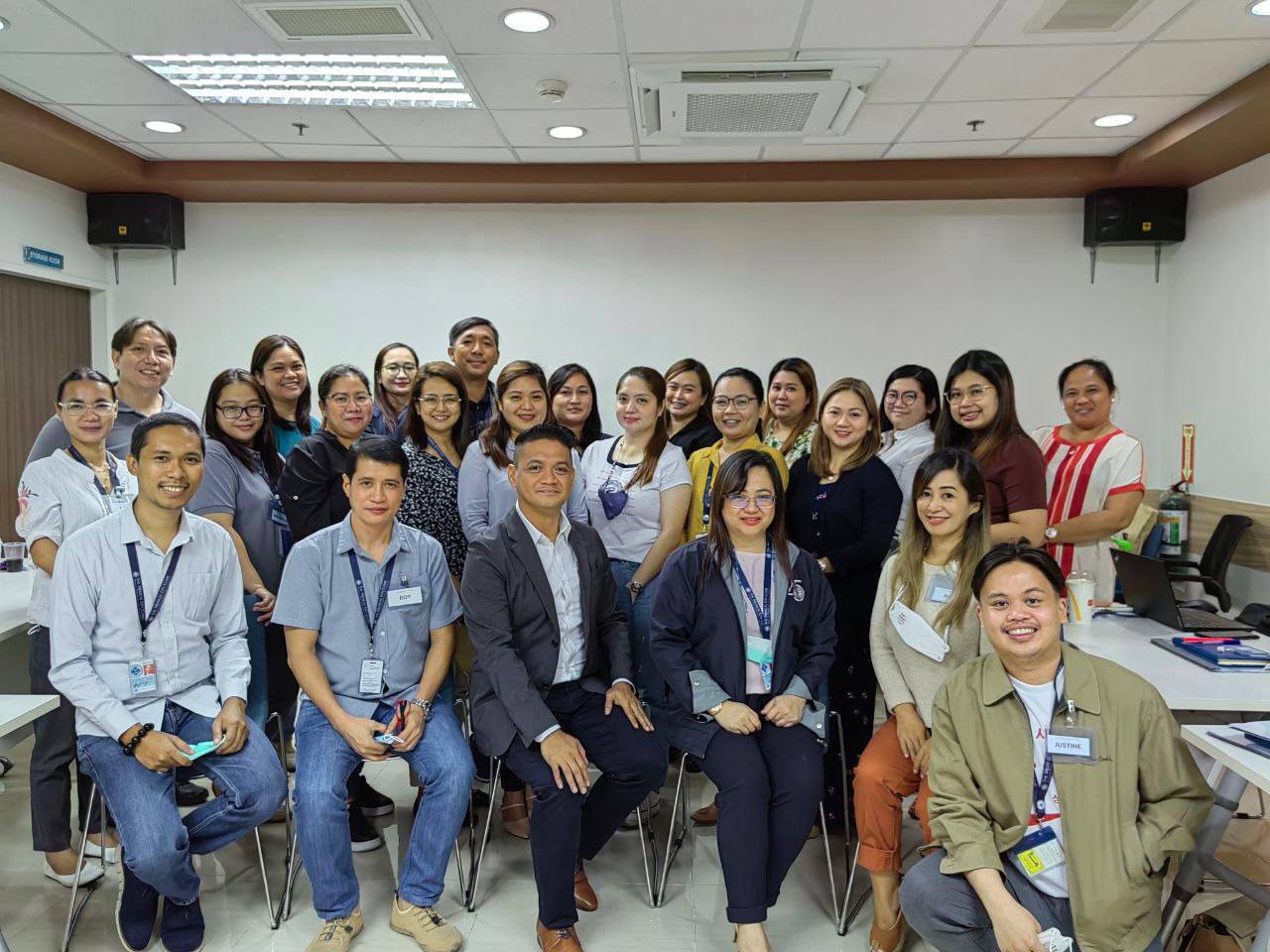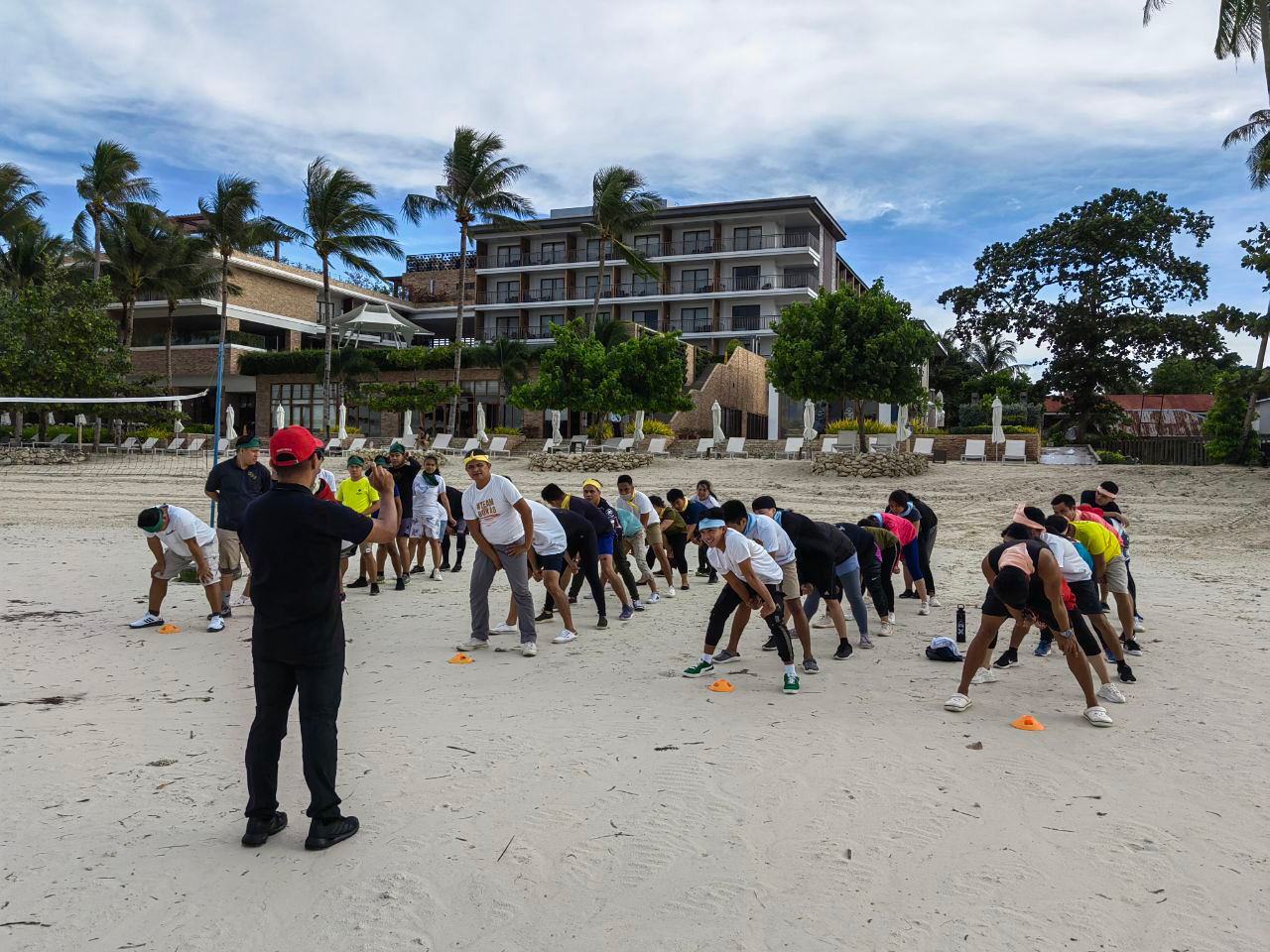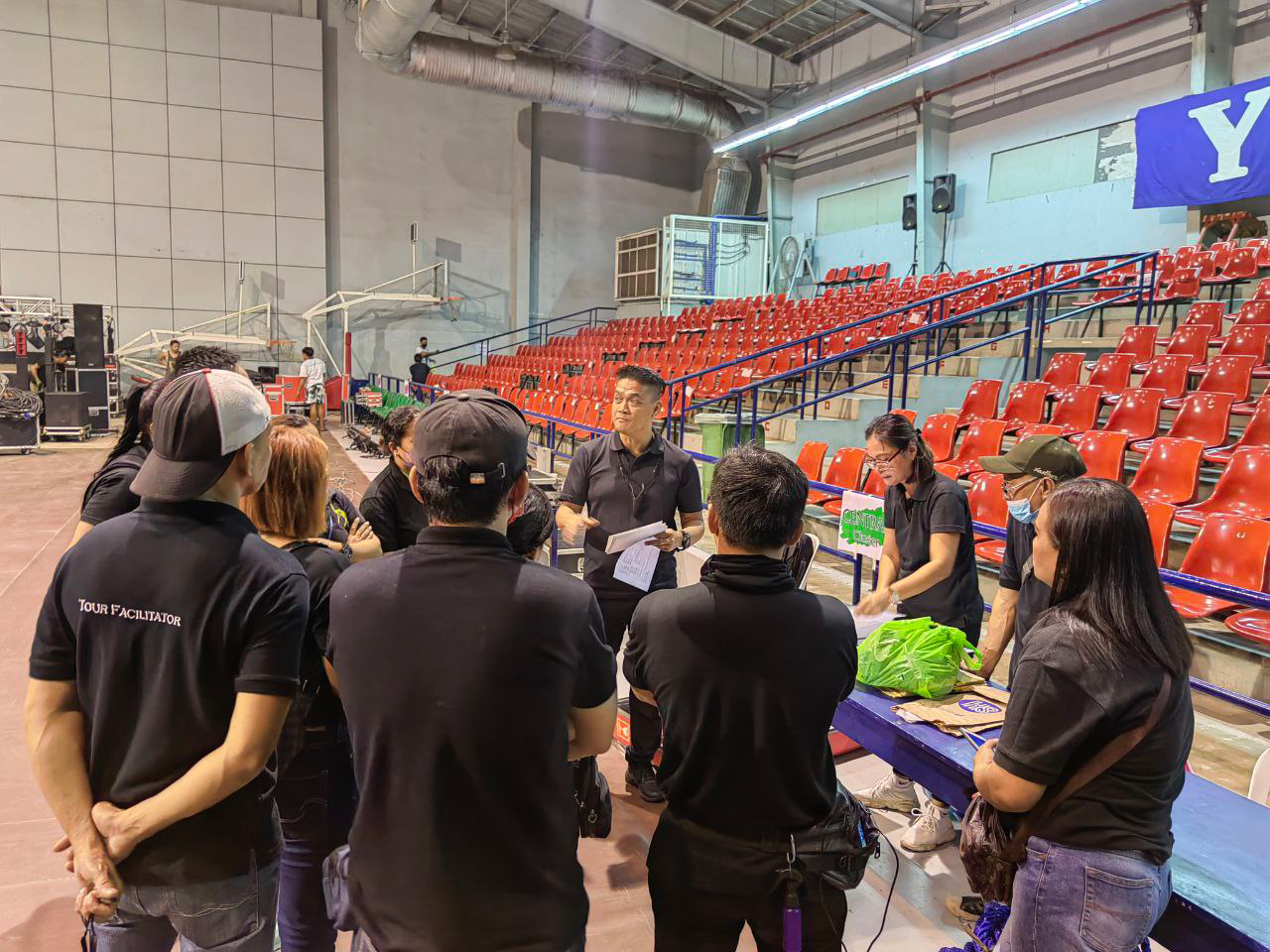The Most Important Asset of An Organization is The Human Capital
How can employee training can help the organization
Increased Productivity and Engagement
Ownership and accountability
Decreased turnover and absences
Increased morale and dedication






Leadership and Management
This program that provides participants with a deeper understanding of the rudiments in managing teams in a virtual setting. A look into the different communication and collaboration tools will be discussed, to allow and encourage teams to embrace virtual working to be the new normal. With the challenges that people face as they go online far longer than they used to, this program provides a clearer grasp of how things work, how things are able to collectively come together virtually and how to begin to understand the complexities of team camaraderie in a virtual platform.
Course Objectives
- By the end of this course, participants will be able to comprehend the unique characteristics and challenges of virtual teams, and understand how they differ from traditional, co-located teams.
- Build and maintain team camaraderie in a virtual setting. This includes understanding the importance of trust, clear communication, and shared goals in a remote work context.
- Cultivate a positive team culture that embraces the advantages of virtual work, encourages open communication, and supports each team member’s individual needs and contributions.
Having an effectively functioning team is crucial and critical in a constantly evolving work environment. As a leader, it becomes imperative to be at the forefront of adapting and navigating through these changes yet managing to lead diverse teams successfully. This course will emphasize the importance of communication, decision – making, and motivation in leading effective teams.
Course Objectives
- By the end of this course, participants will have a deep understanding of the complexities and benefits of leading diverse teams. They will be able to identify the unique strengths and challenges that come with diversity and leverage them to enhance team performance.
- Motivate and Inspire Team Members: Participants will gain insights into various motivational theories and strategies. They will learn how to inspire their team members, foster a positive work environment, and ensure that each team member feels valued and motivated.
- Adapt to Changing Work Environments: In the face of constant change in the workplace, leaders must be adaptable and resilient. This course will provide participants with strategies for navigating change, managing uncertainty, and leading their teams through transitions effectively.
Once in a while, taking employees out of the four corners of the office helps break down political and personal barriers, eliminate distractions, and just have fun! The goals of team-building are to improve productivity and motivation. Studies have proven that team building activities can significantly improve morale and leadership skills, find the barriers that thwart creativity, clearly define objectives and goals, improve processes and procedures, Improve organizational productivity, identify team’s strengths and weaknesses and improve the ability to problem solve. It is in the same principle that employees need this action packed team building workshop.
Course Objectives
- By the end of this course, participants will have experienced firsthand the positive impact of team-building activities on their motivation and productivity levels. They will understand how these activities can foster a more engaged and efficient work environment.
Improve Leadership Skills: Participants will be exposed to various situations that require effective leadership during the team-building activities. These experiences aim to enhance their leadership skills, including decision-making, problem-solving, and communication. - Identify Barriers to Creativity: Through interactive sessions, participants will learn to identify and overcome barriers that hinder creativity within the team. They will gain insights into fostering an environment that encourages innovative thinking and creative problemsolving.
- Clarify Objectives and Goals: The course will provide opportunities for teams to clearly define their objectives and goals. This clarity will help improve focus and alignment within the team, leading to improved performance.
Boss, Stress and Time Management training aims to capacitate participants on the requisite knowledge and skills on how to properly and effectively manage time viz-a-vis work and personal needs. It delves into discussion of handling tasks based on urgency and importance and how this dynamic contributes to unwarranted stress in the workplace.
Course Objectives
- By the end of this course, participants will have a comprehensive understanding of various time management strategies. They will learn how to prioritize tasks based on urgency and importance, leading to increased productivity and efficiency.
- Understand the Relationship Between Time Management and Stress: Participants will gain insights into how effective time management can significantly reduce workplace stress. They will understand the dynamics between workload, time pressure, and their impact on stress levels.
- Develop Skills to Balance Work and Personal Needs: The course aims to equip participants with the skills needed to maintain a healthy balance between work demands and personal needs. This includes setting boundaries, managing expectations, and making time for self-care.
- Enhance Communication with Superiors: Understanding how to effectively communicate with superiors about workload and stress is crucial. Participants will develop communication skills that promote understanding and collaboration, helping them to better manage their time and stress levels.
In today’s challenging and complex world, leadership is a highly valued trait. To thrive, innovate, excel, and lead in this new reality, we must reach beyond effectiveness toward fulfillment, contribution, and greatness. However, not everyone is tapping into the higher reaches of human motivation to lead. A leader should inspire, move and tread the path to success. This workshop aims to provide a roadmap to help you find daily fulfillment and excitement.
Course Objectives
- By the end of this course, participants will have a comprehensive understanding of the core principles and practices of effective leadership. They will be able to distinguish between management and leadership and understand the role of a leader in today’s complex world.
- Develop Skills to Inspire and Motivate Others: Participants will learn how to inspire and motivate their teams towards achieving shared goals. They will gain insights into various motivational theories and strategies, and learn how to apply them effectively in their leadership roles.
- Cultivate a Path to Success: The course aims to equip emerging leaders with the tools and strategies needed to chart a successful path for themselves and their teams. This includes setting clear objectives, making informed decisions, and navigating challenges effectively.
- Embrace Innovation and Excellence: In the face of rapid change and complexity, leaders must be innovative and strive for excellence. Participants will learn how to foster a culture of innovation within their teams and continuously strive for improvement and excellence in their work.
Life is full of leadership opportunities. You just have to be aware and discover it! When a person reaches a plateau, wanting to progress beyond the plateau in order to improve on and move forward. However, progress comes only through change –in a new way. Leaders create change and with a 21st Century Leadership mindset individuals create significant change. Learn the mindset that will help you identify opportunities for change and harness the diverse skills necessary to make that change happen. The leadership mindset is not tied to title or position – and it is within you to learn and master.
Course Objectives
- By the end of this course, participants will understand the importance of adopting a leadership mindset, regardless of their title or position. They will learn how to identify and seize leadership opportunities in various aspects of their lives.
- Understand the Role of Change in Progress: Participants will gain insights into the relationship between change and progress. They will learn how to embrace change as a necessary step towards improvement and forward movement..
- Identify Opportunities for Change: Participants will learn how to spot opportunities for change within their teams and organizations. They will understand how to evaluate these opportunities critically and make informed decisions about which changes to pursue.
- Harness Diverse Skills for Change Management: In order to create significant change, leaders must be able to harness a wide range of skills. Participants will learn how to leverage their own unique skills and those of their team members to effectively manage and implement change.
Time and Productivity has been an emerging challenge for the workforce in this New Normal. As restrictions in the home are much more loose than in an office set up, workers are confronted with overlapping home duties and work related tasks that equally needs urgency and their attentions. Learners are introduced to research-based strategies and age-old principles of time and energy management. Workshops are utilized to maximize learning and transfer of ideas from one learner to the next. The workshop is designed to be highly interactive and output oriented so that learners practice the principles immediately for better absorption and retention of ideas and concepts. Time has always been touted as one of the most precious resource – one that when not used properly and efficiently results to loss in opportunities and delay in goal attainment.
Course Objectives
- By the end of this course, participants will have a comprehensive understanding of the unique challenges posed by the new normal to time and productivity management, especially in balancing work and home duties.
- Master Research-Based Strategies for Time Management: Participants will learn various research-based strategies for effective time management. They will understand how to prioritize tasks based on urgency and importance, leading to increased productivity and
efficiency. - Apply Principles of Energy Management: The course aims to introduce participants to the concept of energy management as a complement to time management. They will learn how to manage their energy levels effectively to maintain high productivity throughout the day.
- Practice Time Management Principles through Interactive Workshops: Participants will have the opportunity to apply the principles and strategies they learn in highly interactive workshops. This hands-on approach is designed to enhance absorption and retention of ideas and concepts.
Virtual meetings have become the new norm in the workplace. With stricter regulations on face to face interaction, we have been thrown into this reality earlier than we expected. This training capacitates the virtual manager on key concepts and strategies to get the most out of meetings. It eliminates needless chatter and time wasters while institutionalising measures to keep virtual meetings fun, productive and results oriented.
Course Objectives
- By the end of this course, participants will have a comprehensive understanding of the unique characteristics and challenges of virtual meetings. They will learn how to navigate these
challenges to conduct effective and productive meetings. - Master Key Concepts and Strategies for Effective Meetings: Participants will learn various strategies for leading effective virtual meetings. This includes setting clear objectives, managing time effectively, and ensuring active participation from all attendees.
- Eliminate Time Wasters in Meetings: The course aims to equip participants with techniques to eliminate unnecessary chatter and other time-wasting activities during meetings. They will learn how to keep meetings focused and results-oriented.
- Institutionalize Measures for Productive Meetings: Participants will learn how to institutionalize measures that ensure virtual meetings are consistently productive. This includes establishing meeting norms, using appropriate technology, and following up on action
items.
The impact of employees’ personality towards the efficiency of the daily operation of an organization has been widely recognized by various researches and studies conducted across the world. The improvement in the personality of the personnel working in an organization thus is integral in improving the overall efficiency of the organization. Accordingly, recent years have seen a variety of efforts by professionals in various fields to design courses that will help develop certain positive trends in personality. This training will be focusing on developing the participants’ personality at workplace. It is important to develop the personality of the employees to enhance organizational effectiveness. Personality in the context of this training will focus on developing the personal skills and characteristics that are important at workplace namely communication skills and conflict management skills.
Course Objectives
- By the end of this course, participants will have a comprehensive understanding of how individual personalities can impact the efficiency and effectiveness of an organization.
- Develop Positive Personality Traits: Participants will learn about various positive personality traits that contribute to workplace success. They will engage in activities designed to foster the development of these traits within themselves.
- Master Conflict Management Skills: Participants will gain insights into effective conflict management strategies. They will learn how to navigate disagreements in a constructive manner that promotes understanding and resolution.
- Improve Overall Organizational Effectiveness: Through the development of personal skills and characteristics, participants will contribute to enhancing the overall effectiveness of their organization. They will understand how their personal growth directly impacts their team and organization’s success.
This training is designed to explore the strengths and weaknesses of individuals to identify their leadership style. Using a combination of lectures and interactive modules, this training aims to provide the participants key concepts on delegating, motivating, controlling and influencing their subordinates to achieve organizational goals and harmonious working relationship.
Course Objectives
- By the end of this course, participants will have a clear understanding of their unique leadership style. They will explore their strengths and weaknesses as leaders and learn how to leverage these traits effectively in a supervisory role.
- Master Key Concepts of Supervision: Participants will learn key concepts related to supervision, including delegation, motivation, control, and influence. They will understand how to apply these concepts to manage their subordinates effectively.
- Develop Skills for Delegating Tasks: The course aims to equip participants with effective delegation skills. They will learn how to assign tasks based on their subordinates’ skills and capabilities, ensuring efficient task completion and team productivity.
- Promote Harmonious Working Relationships: Participants will learn how to foster a positive and harmonious working environment. They will understand the importance of effective communication, conflict resolution, and mutual respect in maintaining good relationships with their subordinates.
When personal goals are not aligned with organizational goals, there will always be a disconnect, says the famed leadership expert – Dr. Stephen Covey. Rallying your organization towards a single goal would prove to be challenging without the right attitude and culture. This course aims to bring together, in a singular fashion, an organizations’ mission and vision down to the level from which they can be transformed to actionable goals and objectives. Work Attitude and Value Enhancement (WAVE) bring together individual and organizational work values towards productivity.
Course Objectives
- By the end of this course, participants will understand the significance of aligning their personal goals with the organization’s mission and vision. They will learn how this alignment can enhance job satisfaction and productivity.
- Develop a Positive Work Attitude: Participants will learn strategies to cultivate a positive attitude towards work. They will understand how their attitude can impact their performance, relationships, and overall workplace environment.
- Enhance Work Values: The course aims to help participants identify and strengthen their work values. They will learn how these values influence their behavior at work and how they can align them with the organization’s values for increased productivity.
- Promote a Culture of Productivity: Through the enhancement of work attitudes and values, participants will contribute to fostering a culture of productivity within the organization. They will understand how their individual efforts contribute to the overall success of the team and organization.
Poor mental health has severe repercussions for employers, this including increased staff turnover, sickness absence due to debilitating depression, burnout and exhaustion, decreased motivation and lost productivity. While companies of all shapes and sizes increasingly understand the importance of good mental health, many simply don’t feel confident handling and communicating these issues in the workplace.
Course Objectives
- By the end of this course, participants will have a comprehensive understanding of the importance of mental health in the workplace, especially in light of the global pandemic and its associated challenges.
- Recognize Common Mental Health Issues: Participants will learn to identify common mental health issues such as stress, anxiety, depression, burnout, and feelings of isolation. They will understand the signs and symptoms of these conditions and their potential impact on work performance and personal well-being.
- Develop Strategies to Support Mental Health: The course aims to equip participants with practical strategies to support their own mental health and that of their colleagues. This includes techniques for managing stress, promoting work-life balance, and fostering a supportive work environment.
- Understand the Impact of Poor Mental Health on Organizations: Poor mental health can affect organizations, including increased staff turnover, sickness absence, decreased motivation, and lost productivity.
Business Communication
This program that provides participants with a deeper understanding of the rudiments in managing teams in a virtual setting. A look into the different communication and collaboration tools will be discussed, to allow and encourage teams to embrace virtual working to be the new normal. With the challenges that people face as they go online far longer than they used to, this program provides a clearer grasp of how things work, how things are able to collectively come together virtually and how to begin to understand the complexities of team camaraderie in a virtual platform.
Course Objectives
- By the end of this course, participants will be able to comprehend the unique characteristics and challenges of virtual teams, and understand how they differ from traditional, co-located teams.
- Build and maintain team camaraderie in a virtual setting. This includes understanding the importance of trust, clear communication, and shared goals in a remote work context.
- Cultivate a positive team culture that embraces the advantages of virtual work, encourages open communication, and supports each team member’s individual needs and contributions.
We have entered an age of Virtual Communication. While face-to-face meetings may not become entirely obsolete, the prevalence of virtual communication methods is undeniably on the rise. As remote employees, it’s crucial to understand these various modes of communication, along with their respective advantages and potential pitfalls. Participants will come to appreciate that steering clear of interpersonal and interdepartmental conflicts can significantly contribute to achieving both personal and organizational objectives.
Course Objectives
- By the end of this course, participants will have a comprehensive understanding of various virtual communication methods.
- Develop Effective Virtual Communication Skills: Participants will learn strategies to communicate effectively in a virtual environment. This includes understanding how to convey messages clearly, listen actively, and engage effectively in virtual meetings.
- Manage Interpersonal and Interdepartmental Conflicts: The course aims to equip participants with skills to navigate and resolve conflicts that may arise in a virtual work setting. They will understand the importance of clear communication in preventing misunderstandings and resolving disputes.
- Adapt to the Changing Communication Landscape: With the rise of virtual communication, it’s crucial for employees to adapt their communication styles accordingly.
Emotional intelligence
Emotional intelligence is widely known to be a key component of effective leadership. Understanding how the brain operates and how the emotional response system works should also be a factor in where we place team members within our organizations. Being able to relate behaviors and challenges of emotional intelligence in the new normal is an immense advantage in building an exceptional team. For leaders, having emotional intelligence is essential for success. After all, who is more likely to succeed – a leader who shouts at his team when he’s under stress, or a leader who stay in control, and calmly assesses the situation? While strategy and planning are very important parts of leadership, you can achieve nothing without having a team on your side. Learning how to understand and support your peers will help you gain their trust, and become a more successful team
Course Objectives
- By the end of this course, participants will have a comprehensive understanding of how emotional intelligence (EQ) contributes to effective leadership. They will learn about the key components of EQ and their impact on leadership success.
- Develop Emotional Intelligence Skills: Participants will learn strategies to enhance their emotional intelligence, including self-awareness, self-regulation, motivation, empathy, and social skills. They will understand how these skills can improve their leadership effectiveness and team dynamics.
- Apply Emotional Intelligence in Team Placement: The course aims to equip leaders with the knowledge to consider emotional intelligence when placing team members within the organization. They will understand how matching individuals’ EQ strengths to specific roles can enhance team performance.
- Build Trust and Support Among Team Members: Through the development of emotional intelligence, participants will learn how to understand and support their peers better. This understanding will help them build trust, foster stronger relationships, and lead more successful teams.
Emotional intelligence involves a set of skills that define how effectively you perceive, understand, reason with, and manage your own and others’ feelings. “Leadership is fundamentally about facilitating performance. There is a proven link between emotional intelligence and the capacity to facilitate emotions in others that drive high performance and increase employee engagement. This is more than just a moral compass; it’s also a recipe for success. Organisations with emotionally intelligent leaders achieve a critical level of sustainable competitive advantage: a high-performance culture and customer loyalty.” This training deals with the future ready skill set of emotional intelligence and how it can propel your organization to better success, manage performance, address workplace conflicts and improve employee morale.
Course Objectives
- By the end of this course, participants will have a comprehensive understanding of how emotional intelligence (EQ) contributes to effective leadership. They will learn about the key components of EQ and their impact on leadership success.
- Develop Emotional Intelligence Skills: Participants will learn strategies to enhance their emotional intelligence, including self-awareness, self-regulation, motivation, empathy, and social
skills. They will understand how these skills can improve their leadership effectiveness and team dynamics. - Facilitate High Performance and Employee Engagement: The course aims to equip leaders with the knowledge and skills to use emotional intelligence to drive high performance and increase employee engagement. They will learn how to facilitate emotions in others that contribute to high performance.
- Manage Workplace Conflicts Effectively: Participants will learn how to use emotional intelligence to address and resolve workplace conflicts. They will understand how effective conflict management can lead to improved team cohesion and productivity.
In many ways, success in customer service begins and ends with the ability to care about the customer’s needs. “Compassion” is a trait that should be a requirement for anyone in your organization that has the potential to make contact with a customer, regardless of whether they’re technically in customer service or not. Empathy – the prime mover of active customer service plays a pivotal role in translating a complaint into brand advocacy.
Course Objectives
- By the end of this course, participants will have a comprehensive understanding of how emotional intelligence (EQ) contributes to effective customer service. They will learn about the key components of EQ and their impact on customer interactions.
- Develop Empathy and Compassion for Customers: Participants will learn strategies to enhance their empathy and compassion, crucial traits for anyone interacting with customers. They will understand how these traits can improve customer experiences and lead to increased customer loyalty.
- Deliver Seamless Customer Experiences: The course aims to equip participants with the knowledge and skills to deliver seamless customer experiences. They will learn how to use emotional intelligence to understand customer needs and provide solutions that exceed expectations.
Customer Service
“Life is a collection of moments” – Amit Ray. The future of customer service lies in crafting distinctive experiences, facilitated by technological progress and a renewed emphasis on human interaction. Studies indicate that this human connection propels business expansion. This training-workshop emphasizes the individual contributions we make to create these “moments” that honor our shared humanity. These moments can ultimately drive revenue, reduce costs, and engage employees, fostering a profound sense of pride and belonging within
Course Objectives
- By the end of this course, participants will understand the importance of human interaction in customer service. They will learn how creating meaningful “moments” with customers can enhance their experience and drive business growth.
- Leverage Technology to Enhance Customer Experiences: Participants will learn how to use technology effectively to facilitate distinctive customer experiences. They will understand how to balance technological advancements with a personal touch in their interactions with customers.
- Develop Skills to Create Meaningful Customer Moments: The course aims to equip participants with the skills needed to create memorable moments that honor our shared humanity. They will learn strategies for engaging customers on a deeper level and making each interaction count.
- Drive Revenue and Reduce Costs through Excellent Customer Service: Participants will understand how excellent customer service can drive revenue and reduce costs. They will learn how to leverage their individual contributions to achieve these organizational goals.
- Foster Employee Engagement and Pride: Through the creation of meaningful customer moments, participants will learn how to foster a sense of pride and belonging among employees. They will understand how their role in customer service contributes to the overall success and culture of the organization.

Silverback Training and Events ©2023. All Rights Reserved
